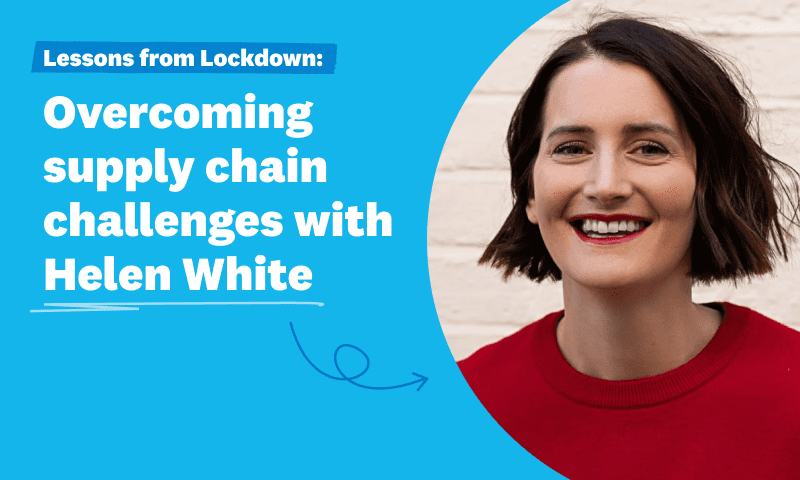
Lessons from lockdown: Overcoming supply chain challenges


houseof is a lighting retailer, but that description alone undersells the incredible design that permeates the brand’s products. The company specialises in bold forms, creating striking lamps, wall lights and ceiling lights, all designed from scratch with a firm grasp of purpose and usage.
The brand is also keen to raise the bar for retail by reducing waste, offsetting the emissions they generate and supporting causes they care about through their “houseof Change” initiative. We spoke with Helen White, who co-founded houseof in 2018, to learn more about the business, how it manages its numbers and the impact of the lockdown.
A tough time to start a business
houseof officially launched their website in 2019, and they’ve faced plenty of challenges. “Our first 18 months has taken us through Brexit, a recession and a global pandemic,” Helen says. “Through that, we learnt to be reactive and adapt to change – not to run and hide from it. The need for online retail has been huge this year, and we are seeing record growth.”
While their online sales model offered some protection from the coronavirus crisis, houseof was still affected by significant supply chain issues. “We are lucky that sales have been consistent, and we haven’t suffered closures like the hospitality industry has,” Helen emphasised. However, most of the business’s lights are produced overseas, and their factory was on lockdown for three months for the employees’ safety. Helen adds, “we had weeks of being out of stock and had to let customers down because of this.”
In addition to restrictions on stock, COVID-19 also impacted imports into the UK. Ports were overwhelmed by an influx of imports due to stockpiling and increased sales, which has dramatically increased processing times. Helen reports that the “costs of containers and processing tripled in the last month as the ports try to clear their backlog.”
Adapting and moving forward
With control over stock largely out of her hands, Helen had to adjust the sales model to keep up with the company’s forecasts. “We had to start selling products earlier in the process and allowing customers to pre-order their stock, a model often used in the furniture industry,” she notes. Helen has found that customers understand the eight-week wait that it now takes to receive their order. She says that “pre-ordering helps us to maintain our positive cash flow and allows us to keep trading during this difficult period.”
The business has always relied on technology to meet one of its founding values – ‘keep it simple’ – and this has meant implementing automation wherever possible. As Helen puts it, “we need quick and easy working practices to keep us nimble and dynamic, meaning that we can react to change when it happens. We rely on Xero: it does everything we need it to whilst saving us time and money.”
Helen continues, “Xero has helped us keep track of our finances during COVID-19 and given us the ability to quickly pull reports and forms for banks and institutions when applying for loans and grants. We rely on Xero to produce our monthly and yearly reporting and our invoicing, and our accountant helps us with our bookkeeping using Xero. We have never actually met our accountant in person, but Xero means that we can both work remotely and have access to the same information.”
A promising future
The second lockdown in November coincided with the business’ busiest months of the year. Lighting sales increase as the nights get longer and the days get shorter in the winter, and Helen says that facing the “busiest period working at home alone has been hard on morale.” However, the business continues to prioritise mental health and communication – and regular chats over a cup of tea – and Helen believes that the future is bright.
Visit our dedicated site for more resources, webinars and inspirational stories to help you emerge stronger from the COVID-19 pandemic.





